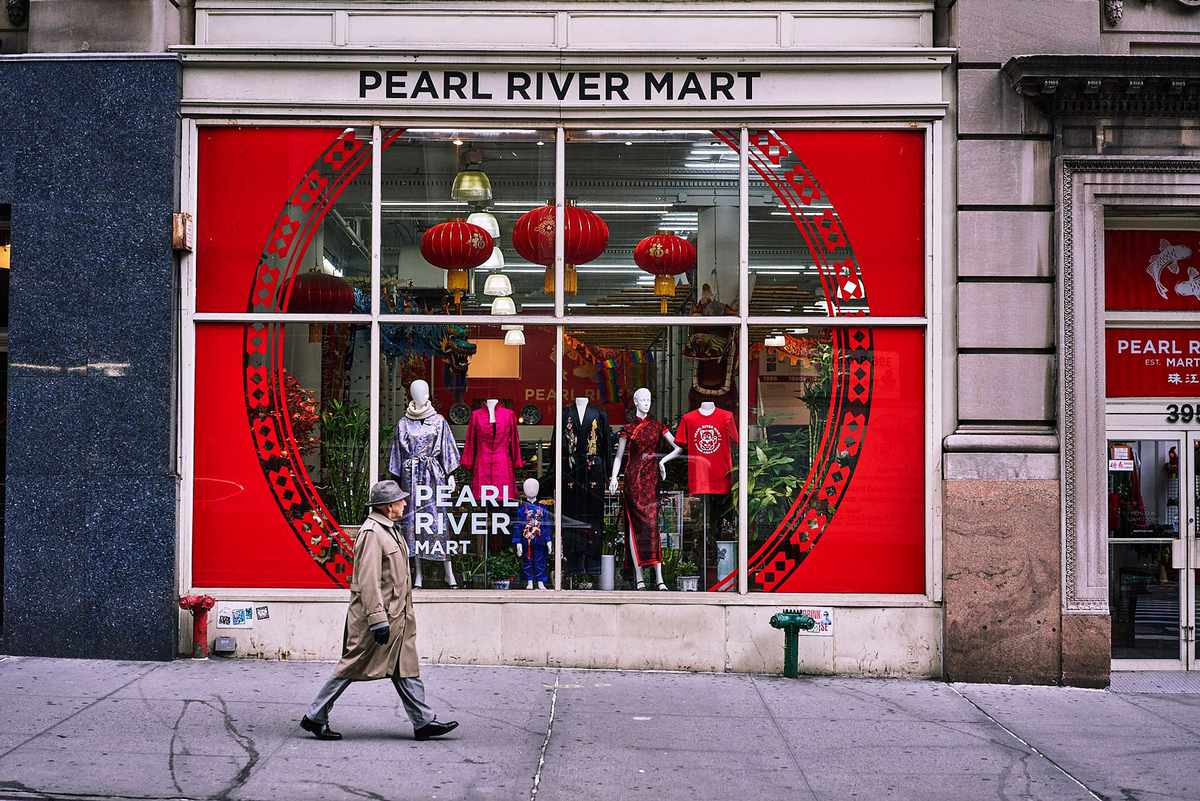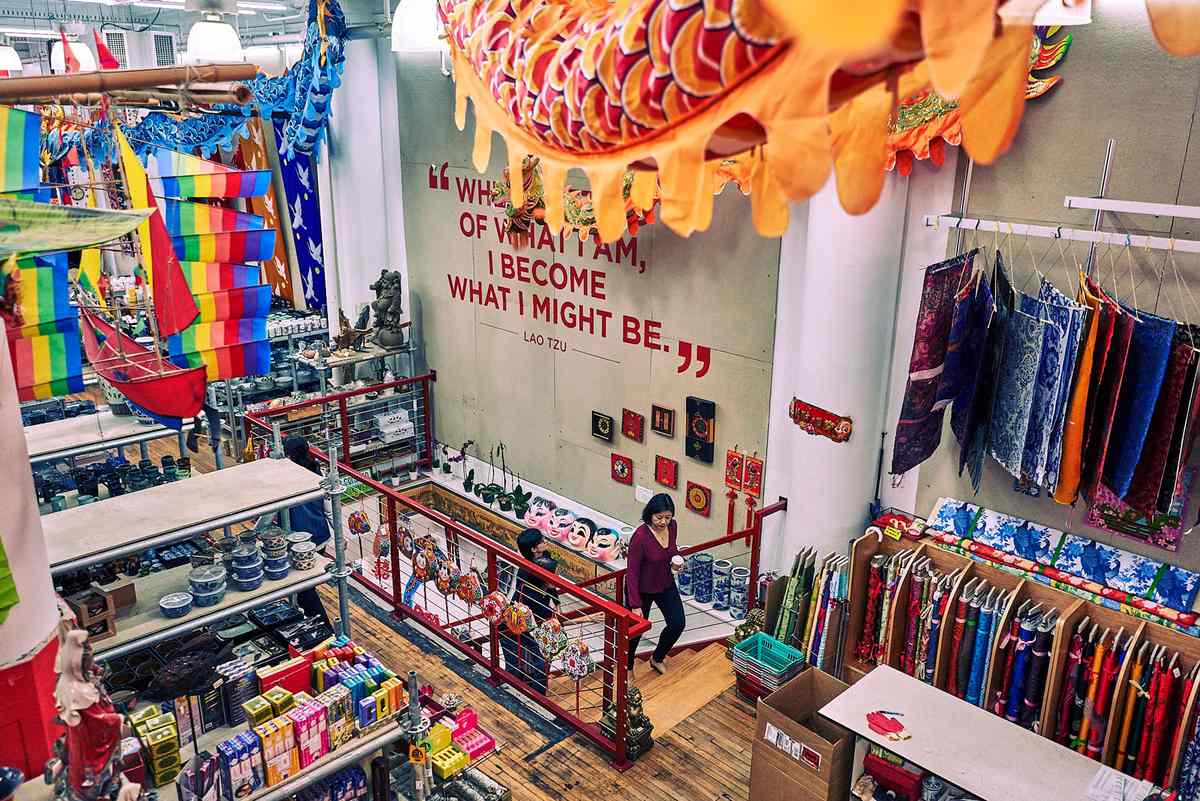
In the first week of February this year, I headed to Lower Manhattan in search of something to wear for the Lunar New Year. While cheongsams may seem old fashioned, wearing these high-necked, fitted dresses is just one way Chinese Americans like myself can embrace the culture and celebrate the new year. However, over the years, quality cheongsams sold by Chinese designers have become increasingly difficult to find due to cultural appropriation and mass production of cheaply made imitations. Luckily, Pearl River Mart, a New York retail store selling Asian goods, had just what I was looking for.
The company was founded in 1971 by Ming Yi and Ching Yeh Chen, student activists from Taiwan, after they recognized that Chinese goods such as chopsticks and soaps were missing from New York City's ecosystem. Joanne Kwong, Pearl River Mart's president, tells Travel + Leisure that an embargo during the 1970s prevented the import of goods between China and the U.S. However, Ming Yi and Ching Yeh found a way to import items so the Chinese community in New York could have access to these necessities. For over 50 years, Pearl River Mart has not only served as an emporium, but as a symbol of Chinese activism and history within the New York City community.
As I walked through the store's aisles filled with Asian snacks and tea sets that day, I was reminded of the importance of having stores like Pearl River Mart. Growing up, I felt an astronomical pressure to assimilate to American culture. I refused to speak Cantonese in public and at home. I didn't bring lap cheong (Chinese sausage) and rice to school because I feared that I would be made fun of due to the smell. And over time, I stopped wearing red and traditional Chinese garments, opting for more modern clothes. Little did I know, in doing this, I was only erasing part of myself. Seeing the cheongsams hung on the racks and having access to these garments in one of New York's infamous shopping districts made me feel seen, represented, and heard. Stores like Pearl River Mart have allowed me to stay connected with my own culture while preserving traditions.
Over the five decades since its founding, Pearl River Mart has become instrumental to preserving Chinese heritage and culture. "Chinese families would come on Monday, the day that restaurant and garment workers had off. And they would come with their families to do their shopping," Kwong said. It also cultivated a reputation for being the store where you could find practically any Asian goods — from chopsticks to rice snacks.
The store was also built as a way for non-Asian people to gain exposure to Chinese culture and heritage. "The subversive idea was that it would decrease discrimination," Kwong said. "You have people come in, they have a chance to interact with you, to see you as people. And if they bring something home, it stays in their home and it's something they remember for decades."
2021 marks the 50th anniversary of Pearl River Mart's founding. While it should be a time for celebration, Kwong said it's difficult to celebrate during a year that has only brought tumult. "Even before Governor Cuomo closed all stores, a lot of Asian American businesses were experiencing xenophobia from January of 2020," Kwong explained. "We certainly saw a sharp decrease in sales."
The decline in profits is what prompted Pearl River Mart to fall behind in rent. Currently, the flagship store is preparing for its fifth move, this time from TriBeCa to SoHo. Kwong explained that years of exorbitant rent costs and gentrification have driven community-founded organizations like Pearl River to relocate and in some instances, shut down. "This is a story about New York City real estate, and how it is to run a small business in New York and in this country, which is increasingly difficult," Kwong said. "[Pearl River Mart] would always become a neighborhood anchor and then they'd be priced out. Gentrification and displacement continued for 50 years."
Because many of the items that Pearl River sells are tied to sensory experiences, Kwong hopes the store's move will allow the organization to keep an in-person shopping experience. "We feel it's important to go to a place where you can see all of it. The web is great, but you can't feel and experience it," she said. "So it's important to still have this brick and mortar experience."
Although Pearl River Mart will permanently close its doors at its current location, its move and continued presence in New York City will be invaluable to the Chinese and Asian American community for years to come. And while Pearl River Mart has built and preserved Chinese and Asian culture for decades, the work continues. "Our connection to Chinatown is very important for us. We still feel an obligation for the city to fight to still be where we were," Kwong said.
Source: Read Full Article











